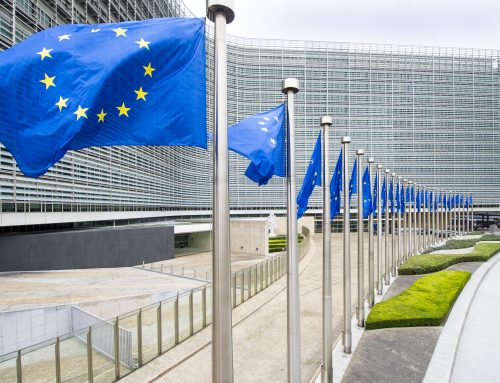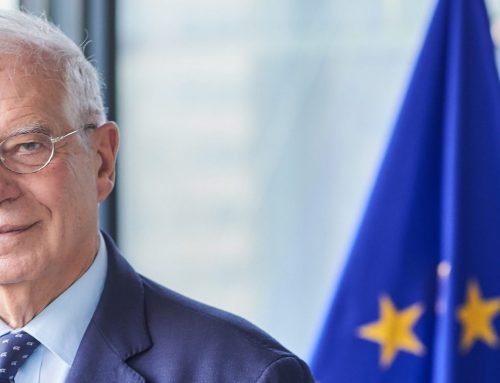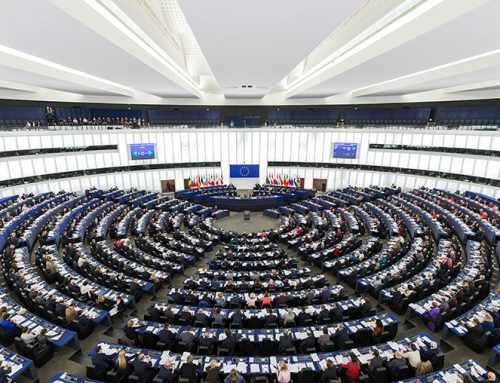European Commission adopted a Communication identifying 10 areas in which Member States and the EU are called to reinforce their actions to prevent all types of extremism that leads to violence, regardless of who inspires it.
Terrorist and violent extremist activities have evolved and are a growing, significant threat within the EU. These activities are carried out not only by organised groups but increasingly by smaller groups or lone actors, now being driven by a wide range of sources. The use of online tools for recruitment purposes and to spread propaganda is increasing, in turn making violent actions harder to predict and detect. Furthermore, an increasing number of Europeans travel abroad to train and to fight in combat zones, becoming more radicalised in the process, and could pose a threat to our security upon their return.
Today the European Commission adopted a Communication identifying 10 areas in which Member States and the EU are called to reinforce their actions to prevent all types of extremism that leads to violence, regardless of who inspires it. Proposed measures include the creation of a European knowledge hub on violent extremism, the development of training for frontline practitioners and financial support for projects making use of modern communication tools and social media to counter terrorist propaganda. Member States are also asked to establish programmes making it easier for members of extremist groups to abandon violence and the underlying ideology. The ten recommendations are the result of two years of work in the Radicalisation Awareness Network (RAN), founded by the Commission in 2011, gathering 700 experts and frontline practitioners from all over Europe.
“No country is spared from the scourge of violent extremism. But still far too few EU Member States are facing up to this rising threat. We need strong, preventive measures to counter extremism in all its forms. Our aim is to boost Member States efforts against radicalisation and extremist violence, and to provide a toolbox for preventive action in Europe”, said Cecilia Malmström, EU Commissioner for Home Affairs.
Protecting citizens against these threats requires an approach that involves a broad range of partners at local, national, EU and international level. To support Member States’ efforts to tackle radicalisation, the Commission is focusing on 10 areas of action:
- Develop comprehensive national strategies. Member States are encouraged to put in place adequate frameworks, involving non-governmental organisations, frontline workers, security services and experts in the field, to facilitate the development of measures to prevent violent extremism and terrorism more effectively.
- Create a European knowledge hub next year to establish and disseminate the best practices and shape the research agenda. It will provide input to EU, national and local policymakers, and coordinate prevention initiatives inside and outside the EU. The Commission will earmark up to 20 million EUR between 2014-2017 for the “Knowledge Hub” and other prevent-related and centrally managed activities including activities of the RAN and support to exit programmes in Member States.
- Build upon the work of the Radicalisation Awareness Network (RAN) to strengthen its role, and ensure that it can provide practical guidance to Member States where requested.
- Develop and facilitate training for frontline practitioners working with individuals or groups at risk, addressed not only to law enforcement and prison staff but also to e.g. social workers, educators, and healthcare workers, developing their understanding of the process of radicalisation and how to respond to it.
- Provide dis-engagement and de-radicalisation support programmes to members of extremist groups (“exit strategies”) in every EU country. Despite their effectiveness, such programmes are not available in the vast majority of EU Member States at present. This type of work is often best done in cooperation between several actors, across sectors, in particular families and community members close to violent extremists. The Commission provides guidance in establishing exit programmes where requested and setting up training for local practitioners involved in the exit work. In the past, the Commission has spent around 10 million EUR under the ISEC Funds for de-radicalisation projects. Through the ISEC Fund, the Commission has funded a large number of projects to increase the knowledge of the radicalisation process and expertise in how to design effective prevention measures.
- Cooperate more closely with civil society and private sector to address challenges faced online. Extremist material and propaganda is easily accessible online through discussion sites, social media, blogs, etc. Efforts must go further than prohibiting or removing illegal material, and include the development of counter messages to de-construct extremist narratives. Community groups, citizens, victims and former extremists can carry out strong messages. The Commission proposes to set up a forum with key players in the industry to discuss opportunities for closer cooperation and supports the production and dissemination of counter-narratives.
- Empower victims. Victims’ voices are a powerful tool for prevention and de-radicalisation, but only if victims feel comfortable with sharing their story and have the necessary support available. The Commission will support victims groups and networks, including through the funding of projects, to facilitate communication activities and to increase awareness.
- Encourage critical thinking amongst young people about extremist messages. Education and youth exchanges are key areas to help young people to think critically about extremists’ views and discourses and expose the flaws of such propaganda. The Commission will support local communities and groups working with former violent extremists and their victims, as they can best describe the realities of war and terrorist training camps for instance.
- Increase research into trends in radicalisation. EU funding will continue to be available to explore how and why people radicalise or de-radicalise, and on the roles played by, for instance, ideology, internet-based recruitment techniques and role models.
- Work more closely with partner countries outside the EU. Vulnerability to radicalisation does not stop at EU borders. The Commission and the High Representative will continue working with third countries to prevent radicalisation, through the use of EU funding for training or supporting the media and other grass root preventive initiatives. Strategies to prevent radicalisation and violent extremism should also be incorporated into development cooperation tools and instruments.
Furthermore, the Commission is publishing today a Collection of approaches and practices to prevent and counter radicalisation developed by the RAN. It presents a set of eight practitioners’ approaches in the field of prevention of radicalisation, each of them illustrated by a number of selected practices and projects. This collection is intended to further support actions proposed in the Communication.
Useful Links
Link to Communication
Cecilia Malmström’s website
Radicalisation Awareness Network (RAN) website
DG Home Affairs website



